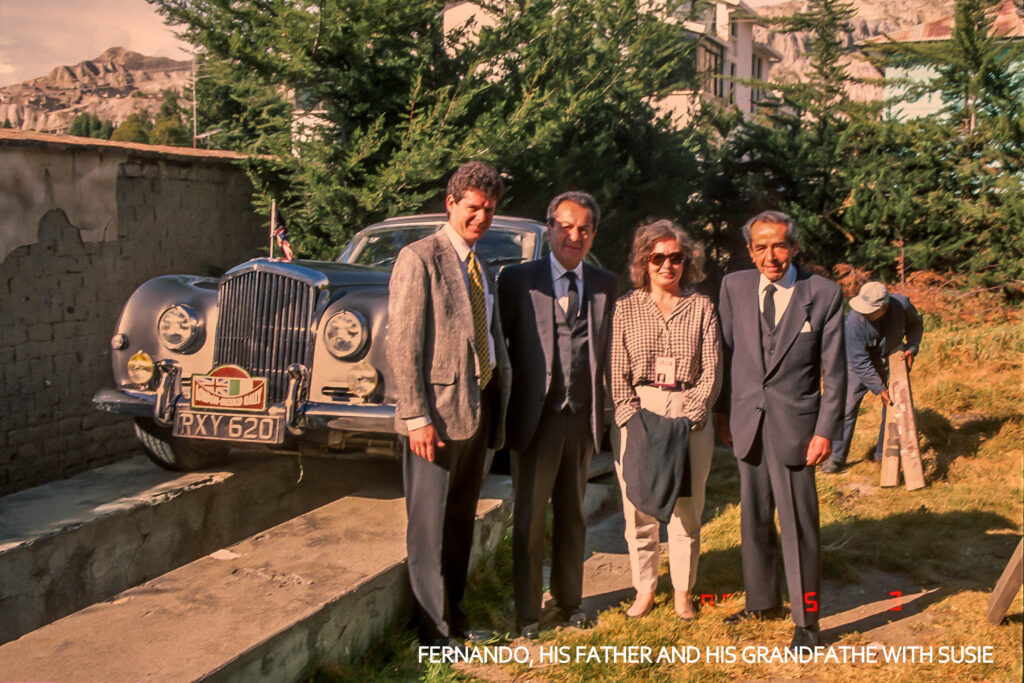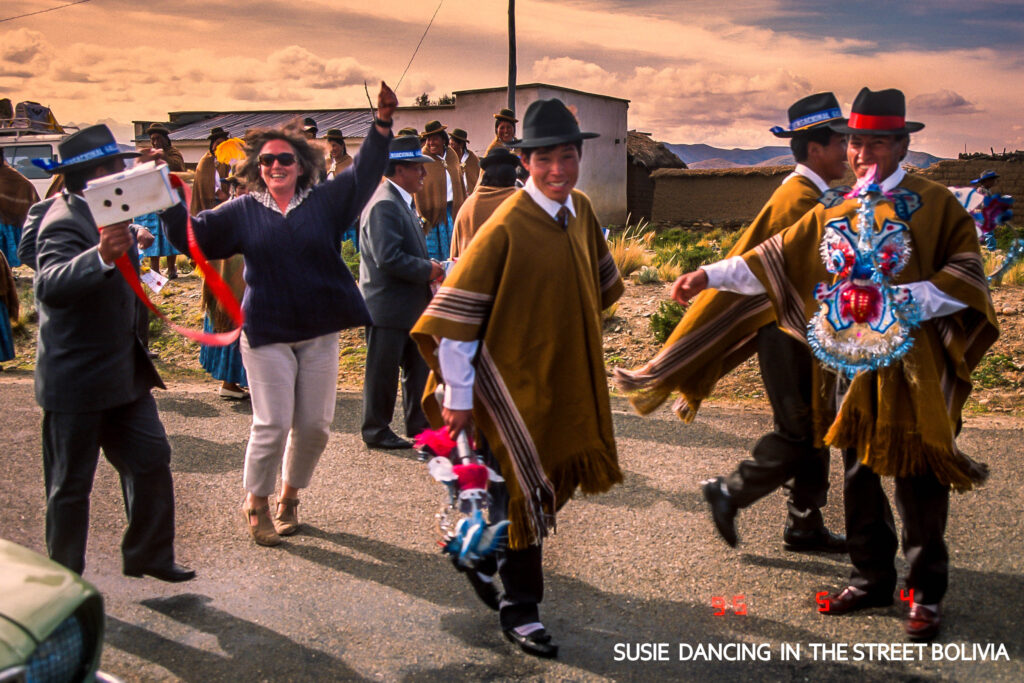Travelling on top of the world in this under populated, fascinating and wild country, we stopped in a little rough village to buy gear oil for our one-shot lubrication system from an oil shop which, though small, was crammed with every type of oil. None had a recognisable brand, so we bought a gallon of kingfisher blue 90-grade rear axle oil, which was drawn from a 50-gallon drum and looked good enough to drink. This was put into a plastic container of good quality, and charged at $10 US. The little Bolivian shops, a bread shop, a coffee shop, a pots and pans shop, made up these ramshackle villages and had a charm that befitted our mood and provided us with an interesting break on the long journeys.





Our arrival in La Paz, which stands at12,000ft above sea level, making it the world’s highest capital, was impressive and thankfully we had arrived well before darkness despite our dawdling and shopping. The skyscape over a great plain, the Altiplano, to our left was being pounded in the middle distance by a heavy storm occasionally blotting out the distant vista of mountains which ran up from the south and round to the west meeting the twinkling snow capped Cordillera Real which reached up 21,000ft into the clear blue Andean sky. This created an amphitheatre-like setting to an already lofty capital. In spectacular fashion the city is built up onto these mountainsides with houses terraced in a bewildering variety of styles, sizes and colours.

We were met just before the entrance to the city by members of the local car club driving a Nissan Patrol who beckoned us to stay close to them whereupon they raced off with headlights and flashers blazing into the busy maelstrom of lorries and 4-wheel drive vehicles which seem to charge around the city for no good reason; we clung as tightly as possible to their rear. This was an excellent service as the geography and topography of La Paz requires tenacious driving which inhabitants of San Francisco and Hong Kong Island can only begin to imagine.

Safely parked outside the hotel in a cordoned off street we were reminded of the failed coup which Bolivia had just undergone. The army was everywhere and it is remarkable how those little soldiers can manage to carry such heavy American-made machine guns which look so incongruous on men of small stature.
The following morning whilst attempting to clean up Hero, a pleasant young man with impeccable English volunteered his home as a place where we could carry out a service. We had the oil and filter but felt very worried about spilling the old black oil as we removed the filter bowl – always a difficult job on an Sl. He quietly assured us that he had all the facilities, and presently we were arriving in a leafy expensive quarter of La Paz whereafter throwing open big rusty sheet steel gates he beckoned me to drive into what was the bottom of a rear garden. The facilities promised were indeed available with a pit and a ramp and a willing, smartly turned out servant. After meeting his grandfather, father and mother we were invited to lunch after the work was completed.

Fernando’s grandfather had been the importer for British Leyland vehicles and his father was the Consulate General for Honduras while Fernando was an American Embassy official. They could trace their family tree directly back to the Inca chiefs, prior to the Spanish invasion. We all had one thing in common: a love of old motor cars and particularly Bentleys. They were great admirers of the marque and had never seen a Bentley Continental in Bolivia, the British Ambassador’s Daimler being the nearest to a car of tradition and elegance. Hero having had a good service, a wash and a thorough vacuum cleaning was escorted back to the hotel in the early afternoon after we had had a super and entertaining lunch. Fernando’s father, in shaking hands goodbye, was to warn me of the perilous road between Puno and Arequipa, Peru, but first we would have to get to Puno which would involve crossing Lake Titicaca.

Departure from La Paz to Peru involved leaving the city along specially cordoned off streets with waving crowds and thousands of armed soldiers spread out over the route at each junction. We had mounted our Union Jack for the occasion and the Bolivians shouted and waved creating a carnival atmosphere; we were really sad to be departing this wonderful city so quickly.
